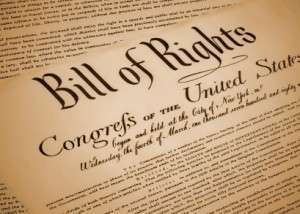It seems that those of us who care about the built environment, urban design and planning, public realm and quality of life are often talking about it after a decision by government that flies in the face of a city that cares about itself.
Maybe we should create a way, a process or a convening where we develop a list of what we believe to be our basic rights as residents and workers of Memphis. Then we could provide the list of rights to every elected official in our community as our manifesto for good decisions. If any of you would like to start it by submitting your Declaration of Rights, we’d love to have them.
In the meantime, here’s a list written by Berkeley resident Sharon Hudson, who proposed an urban bill of rights for the city as a reaction to what she sees as excessive development and a “race to the bottom.”
Here’s her list:
1. The right to see significant greenery, the sky, and the sun from within one’s home.
2. The right to natural cross ventilation in one’s home.
3. The right to enjoy peace and quiet within one’s home with windows open.
4. The right to sleep at night without excessive artificial ambient light.
5. The right to be free in one’s neighborhood from pollution of air, water, soil, and plant life.
6. The right to be free from undesirable local environmental change caused by poor urban design, such as wind, shadow and noise canyons, excess heat caused by overpaving, etc.
7. The right to adequate space for storage, hobbies, and other personal activities in and around each dwelling unit, including play space for children in family housing.
8. The right to mobility, regardless of income. If automobile use is discouraged by prohibitive pricing, public transit must be adequate and low cost.
9. The right to parking space for each household.
10. The right of convenient access, on foot if possible, to basic daily needs, such as good quality food at reasonable prices, daily household and medical supplies, laundry facilities, etc.
11. The right of convenient access, by foot, private vehicle, or transit, to places of employment.
12. The right of equal access to the commons and to taxpayer-funded and other public facilities, such as government buildings, libraries, museums, bridges, and roadways.
13. The right of access within walking distance to nature, recreation, outdoor exercise, and discovery, including parks, open space, and areas inhabited by wildlife.
14. The right to equal and adequate police, fire, and emergency services, which shall not be infringed on the basis of income or neighborhood character.
15. The right to participate in and guide, through equitable, representative, democratic processes, land use decisions that affect oneself, one’s neighborhood, and one’s community.




Based on what her bill of rights, Sharon should move out to Collierville.
In all candor: This seems awfully fussy and self-involved, kinda like the Princess and the Pea.
16. the right to buy a convenient clueless city councilwoman whenever one of my connected developer friends wants to build something.
17. the right to NOT have to ready any silly convoluted development ‘codes’ to tell me that I can’t do what I want with my own property.
18. the right to have a likkuh sto within shootin distance.